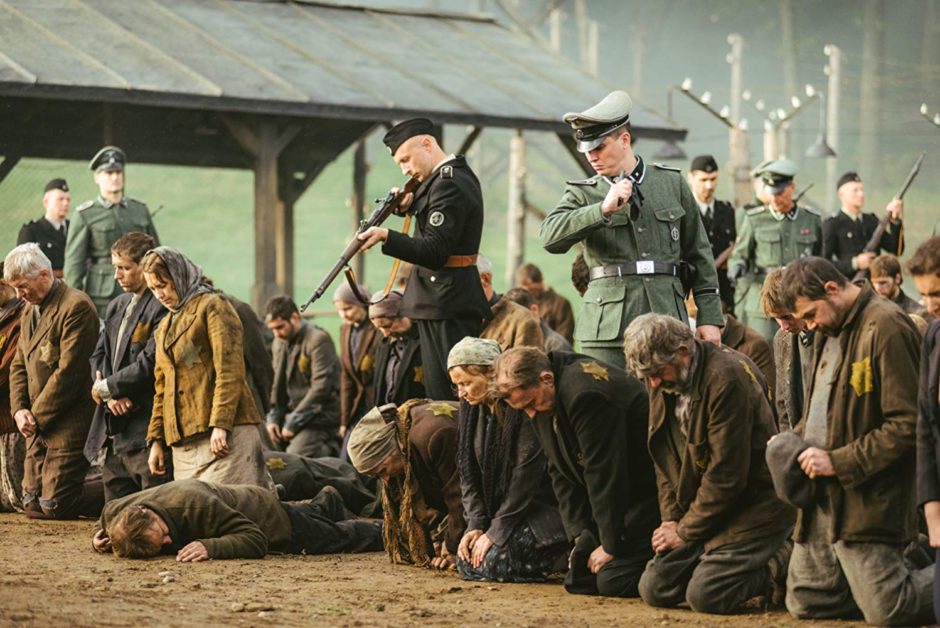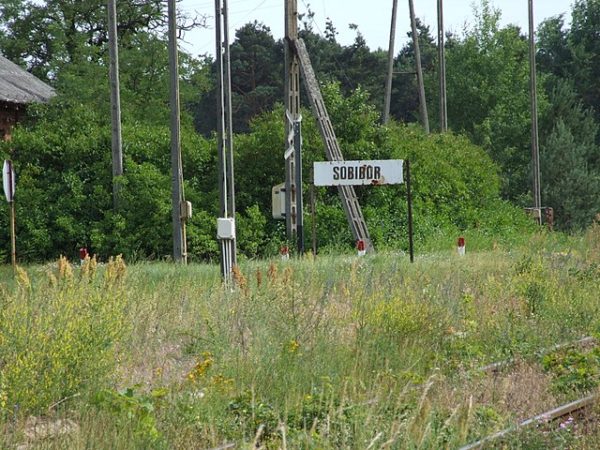
Sobibor was a cog in a chain of Nazi extermination camps in German-occupied Poland built to eradicate the Jews of Europe. Upwards of 225,000 men women and children were murdered there in just over a year.
In the autumn of 1943, a group of Red Army prisoners of war who had been sent to Sobibor staged a revolt, touching off a mass escape of prisoners. Konstantin Khabensky’s feature film, Sobibor, which is to be released theatrically in the United States on March 29, focuses on this rebellion while setting out the atrocities and random acts of cruelties the Nazis committed in the camp during this period.

Unfolding in German, Russian and Yiddish, this suspenseful Russian movie was in the running for this year’s Academy Award for best foreign picture. And while it fell short of the mark, it’s well-crafted and earnest, with credible performances from its international cast.
It opens as a train, pulled by a smoke-belching locomotive, arrives at Sobibor to deposit the latest batch of doomed Jewish captives. Immaculately dressed, they look like middle-class people ready to check into a hotel. “Welcome to Sobibor,” a male voice intones cynically on a speaker. “Welcome to your new lives.”
Little do they know what horrors await them. How could they? Sobibor, constructed in the backwoods of eastern Poland and later dismantled by the Nazis, was a German state secret.
As they disembark, a four-main band plays classical music and a flag, emblazoned with a bright red swastika, flutters in the breeze. After they surrender their possessions — clothes, jewelry and suitcases — the new arrivals are told they can reclaim their goods after they take a shower. An SS officer assures them they can expect a “dignified” life in Sobibor.
The brazen lies the Nazis tell are supposed to lull the Jews into complacency. “Finally, we can have a shower,” says a woman who, along with other naked women, will soon be murdered in a gas chamber. The death scene is chilling, but not as grisly and stomach-churning as it could have been.
Shortly afterward, the captured Soviet soldiers, all Russian Jews, arrive from Minsk. They’re a ragged bunch of men, unshaven, sooty and unkempt. In short order, they’re plotting to escape from this hell hole.
Four or five inmates who break out of the camp are summarily shot. In retribution, the Germans shoot a group of hapless inmates.
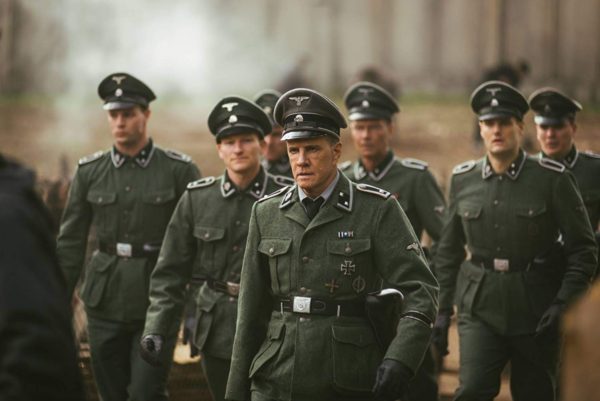
The atmosphere conveyed by the film is unrelievedly bleak and grim. Smoke continually pours from chimneys, suggesting that the crematoria are working furiously. Sadistic Germans kill Jews for the sport of it. A Jewish kapo, a hateful figure, tries to sexually assault a woman. Amid the horrors, Frenzl (Christopher Lambert), the laconic camp commandant, delivers a bizarre little speech in which he divulges that his antisemitic father forbade him to marry his Jewish girlfriend.
With news having filtered out that Sobibor is to be closed and its inmates killed, one of the Soviet POWs, Alexander (Sasha) Pechersky (Khabensky), a Red Army officer, is persuaded to take charge of a brewing rebellion. Being demoralized by his imprisonment, he’s reluctant at first to accept the assignment. When he realizes he has nothing to lose, particularly after Frenzl tries to kill him, he relents and begins planning the uprising.
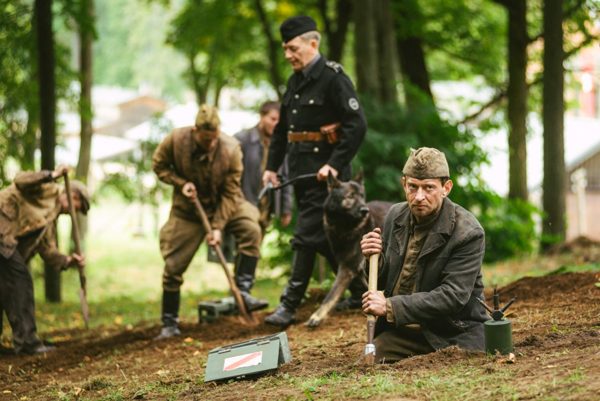
Pechersky’s strategy is simple — kill the SS officers who run the place, steal their weapons and escape.
One by one, the Germans are lured into a workshop and axed or knifed to death. Their bloody deaths will surely elicit glee among viewers waiting for swift vengeance.
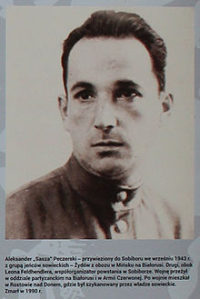
When Frenzl is shot by a Jewish sharpshooter, the revolt is officially activated. Brandishing a revolver, Pechersky runs toward a dense forest, trailed by hundreds of inmates. The majority will not survive the flight, but their valor and courage merit admiration.
Sobibor pays due respect to their uprising against tyranny and genocide.
